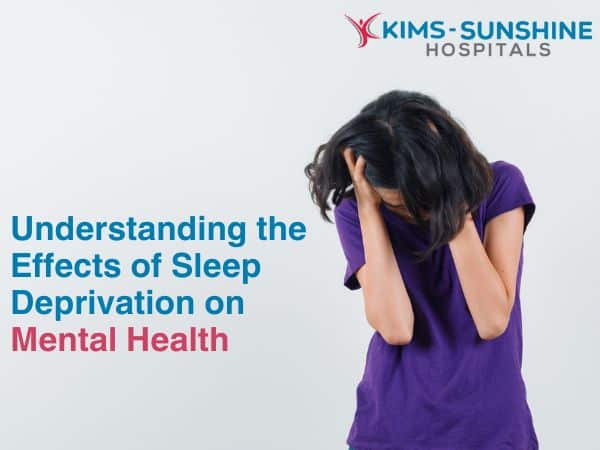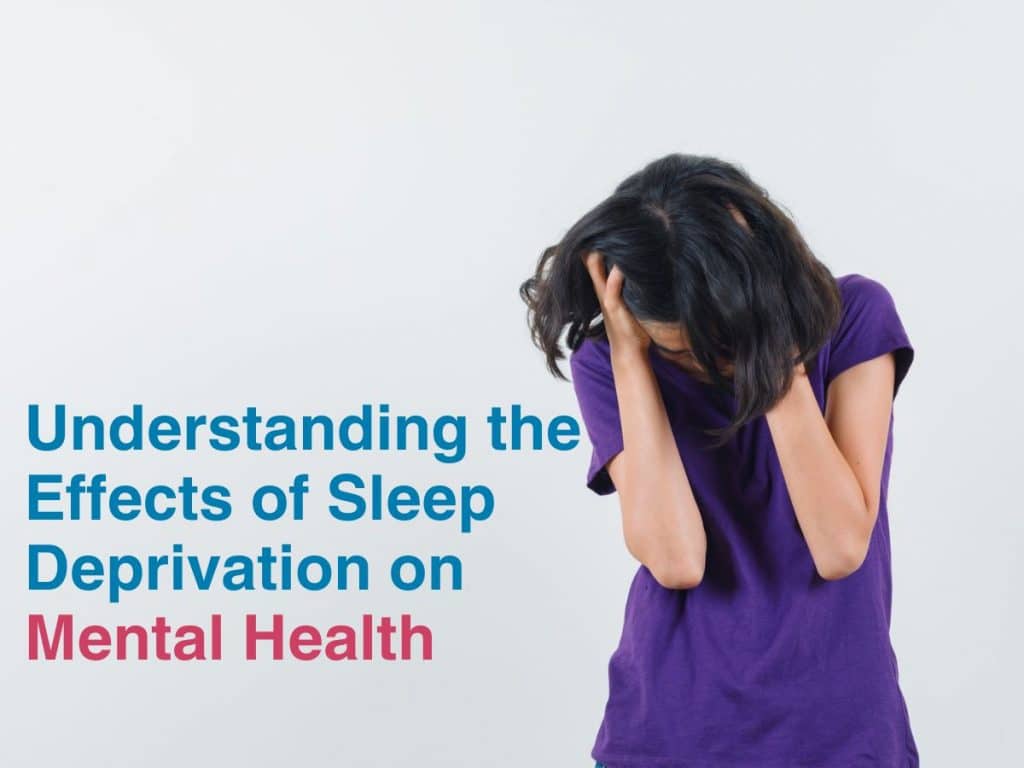
Understanding the Effects of Sleep Deprivation on Mental Health
 Introduction
Introduction
Doom scrolling reels at 3 am – we have all been there a few times. But, keep doing this on a daily basis, and you become a sleep-deprived person. Sleep deprivation is harmful in the long run and can cause a lot of health issues. This is because sleeping is akin to eating or breathing- an essential human need. Some of the most common problems people face include reduced attention spans, migraines, anxiety or irritability, lower cognition, etc. A landmark symptom is when you feel drowsy and tired throughout the day and fall asleep within 5 minutes of lying down on the bed.
Causes of Sleep Deprivation in Adults
Some common causes of sleep deprivation include a change in schedule, travel-induced jet lag, long naps during the day, excessive stimulation with phones or laptops or other medical issues that may cause insomnia. New mothers often get only a couple hours of sleep or even less as they need to take care of their new-borns, which is a very demanding task. Drinking too much or some medications can also cause sleep deficiency.
Sleep Deprivation Symptoms and Treatment
Common symptoms you may face when you are low on sleep include the following-
1. You may feel grumpy or irritable
2. Lower cognition than usual
3. Reduced libido
4. Your quality of life goes for a toss
5. Microsleeps during the day – where you may pass out due to exhaustion
6. Poor judgment while driving can be fatal
7. Not being able to focus on a task at hand
Some approaches to treat sleep deprivation include:
1. Follow the no-phones or gadgets 30 mins before bed rule religiously
2. Go to bed at the same time. A good routine helps. Dress in comfortable clothes so that you don’t toss and turn around unnecessarily.
3. Spend some time outdoors in the sun. The sleep hormone melatonin is secreted better in the presence of the sun.
4. If you have to nap, then let it be under 30 minutes or less.
5. See if you can meditate for a while every day.
6. Make your room comfortable, dark, cozy, and noise-free. Avoid cranking the heat up too high as the body needs to be cool for you to fall asleep. This is also why you can sleep better in a cold room, but not in a hot one.
7. Do not consume any stimulants like coffee, tea, nicotine, or any caffeine-containing beverages in the evening or after dinner.
Long-term Effects of Sleep-Deprivation
Experiments on volunteers have shown that you cannot die from a lack of sleep, but your quality of life suffers heavily. Not getting enough sleep can cause many physiological problems like hormonal imbalance, affect the functioning of the immune system, damage the heart, make you more susceptible to obesity diabetes, or hypertension (all lifestyle disorders), and even cause physical pain.
Impact of Sleep Deprivation on the Immune System
The immune system has long been known to be influenced by a lot of factors- and the amount of sleep you get on a regular basis is one such important one. Research shows that you are more susceptible to catching a cold and will take longer to fight it off when you are sleep-deprived. The immune system orchestrates the release of cytokines which are protective in function, while you are asleep. This means you make fewer of these cells and cytokines- all of which contribute to poor immune health.
Conclusion
As Peanuts says – “Happiness is a nice long nap”. Sleep is essential at a very fundamental level, and not getting enough means paying a heavy price in the form of health issues. A new term called “sleep hygiene” has been doing the rounds these days- and it just means all those behaviors you engage in during the day that ensure a good night’s restful sleep. So, deadlines be damned! Just get to bed, and get some much-needed sleep.
Frequently Asked Questions

Dr. Nishanth Vemana
MBBS, MD Psychiatry (Kasturba Medical College, Manipal)
Consultant Psychiatrist






